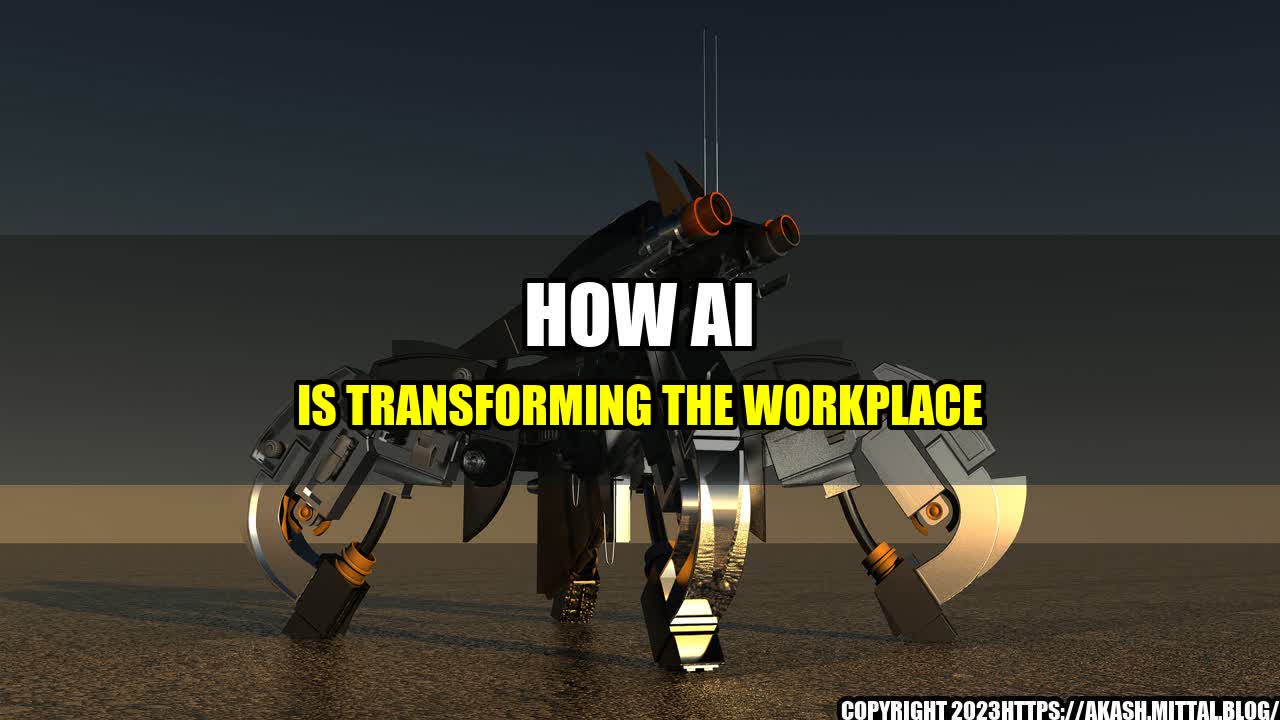Meet Sarah. She's a talented marketer with years of experience, but she's struggling to keep up with the endless stream of data and information that comes her way. There are social media analytics, consumer surveys, sales reports, and so much more. The problem is, all of this data is spread across different platforms and systems, making it hard for Sarah to make sense of it all. Sound familiar?
If you're like Sarah, you're not alone. In fact, most professionals today face the same challenge of information overload. Thankfully, there's a solution: Artificial Intelligence (AI). By using AI-powered tools and applications, teams can streamline their workflows, automate repetitive tasks, and gain valuable insights from massive amounts of data. Let's take a closer look at how AI is transforming the workplace.
AI in Action
While AI is still a relatively new technology, there are already countless examples of its impact in the workplace. Here are just a few:
- Sales forecasting: By analyzing past sales data and market trends, AI can predict future sales with a high level of accuracy. This allows sales teams to focus their efforts on the most promising opportunities, which in turn leads to increased revenue.
- Customer service: With AI-powered chatbots, companies can provide 24/7 support to their customers without the need for human representatives. This not only saves time and money, but also improves customer satisfaction by providing instant and consistent responses.
- Content creation: AI can help marketers and writers generate high-quality content in a fraction of the time it would take to do it manually. By analyzing online data and user behavior, AI can identify topics of interest and generate articles and posts that are tailored to specific audiences.
- Talent acquisition: Using AI-powered tools, recruiters can quickly and accurately sift through resumes and job applications to identify the best candidates for a given role. This saves time and resources, while also improving the quality of hires.
As these examples show, AI has the potential to transform nearly every aspect of the modern workplace. By automating mundane tasks and providing valuable insights, AI can help teams work faster and smarter, making them more productive and efficient.
and Case Studies
Of course, the real test of AI is how it performs in real-world scenarios. Let's take a look at a few personal anecdotes and case studies that illustrate the benefits of AI in the workplace.
Case study: T-Mobile
T-Mobile, one of the largest wireless carriers in the US, was in need of a way to improve its customer service operations. With over 72 million customers, the company was receiving thousands of calls and messages every day, making it difficult for customer service representatives to keep up.
To address this challenge, T-Mobile partnered with a startup called Observe.AI, which uses AI to analyze phone conversations and identify areas for improvement. With Observe.AI's tools, T-Mobile was able to:
- Automatically transcribe and analyze every call that comes in
- Detect trends and issues in customer conversations in real time
- Provide instant feedback and coaching to customer service representatives
- Improve overall customer satisfaction and retention
Thanks to these AI-powered tools, T-Mobile was able to streamline its customer service operations and provide better support to its customers. As a result, the company saw a significant increase in customer satisfaction scores, as well as a reduction in call handling times.
Personal anecdote: John
John is a marketing manager for a small e-commerce company. He's responsible for overseeing the company's social media accounts, email campaigns, and content marketing efforts. Despite working long hours, he often feels overwhelmed by the sheer volume of data and information he has to sift through every day.
Recently, John decided to start using an AI-powered social media management tool. The tool, which uses machine learning algorithms to analyze user behavior and engagement, helps John:
- Identify the best times to post and which types of content perform best
- Automatically generate captions and hashtags for his posts
- Analyze the performance of his campaigns and make data-driven decisions
- Free up time to focus on more strategic initiatives
According to John, the AI tool has been a game-changer for his team. By automating repetitive tasks and providing insights he wouldn't have been able to uncover on his own, the tool has allowed John to work more efficiently and effectively. As a result, the company's social media accounts have seen a significant increase in engagement and follower growth.
Conclusion: How AI is Transforming the Workplace
As we've seen, AI has the potential to bring significant benefits to the modern workplace. By automating tedious tasks, providing valuable insights, and improving decision-making, AI can help teams work more efficiently and effectively. Here are just a few key takeaways:
- AI can help teams streamline workflows and automate repetitive tasks, freeing up time for more strategic initiatives.
- By analyzing large amounts of data and identifying trends, AI can provide valuable insights that would be difficult to uncover manually.
- AI can help companies improve customer satisfaction, increase revenue, and make more data-driven decisions.
Of course, like any new technology, AI comes with its own set of challenges and limitations. However, by embracing these tools and investing in the right training and infrastructure, companies can harness the power of AI to unlock new levels of productivity and innovation.

Curated by Team Akash.Mittal.Blog
Share on Twitter Share on LinkedIn